Meet an Educator is a monthly series by Early Bird, where we feature the work of educators across India who are actively spreading the joy of birds and nature. This month’s featured educator is Sunil Harsana, a nature educator from Mangar village in Haryana. He established the Mangar Eco Club that provides environmental education to the children in his village.
The original Hindi version of this interview can be found here.
Do tell us about yourself, where you are from, and your work
My full name is Sunil Harsana, resident of Mangar, a village in Aravalli hills in the Faridabad district of Haryana and for the past decade I have been working for forest and wildlife conservation in the Aravalli area around my village. I am currently part of the Coexistence Fellows 2022 cohort, and working on human-leopard coexistence in the Aravallis of southern Haryana.
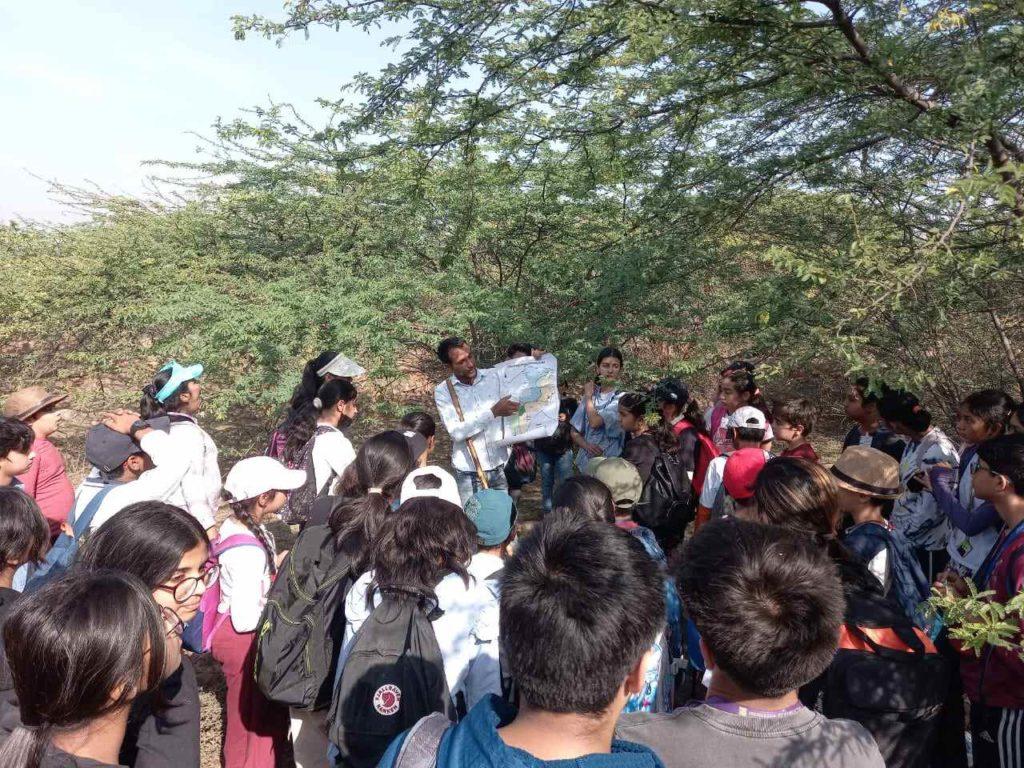
Are you a birder? What about bird watching excites you?
No, I am not a bird watcher. I am a conservationist and trying to protect one of the oldest mountain ranges in the world, Aravalli, on the border of the National Capital. My childhood has been spent living in the forest and everything related to the forest, trees, plants, animals, birds and insects have always attracted me. In 2015, I established an Eco Club with the aim of encouraging the children of my village to conserve the environment. Then, I came in contact with many bird experts through the Eco Club, from whom I got an opportunity to know many secrets related to the bird world. Since then my curiosity in birds and their lifestyle only increased. The study of their behaviour like feeding, pairing, nesting etc. proved to be very helpful for me in my conservation work as well. Apart from this, birds are the easiest key to connect with the environment, so they are an important reason for my success in the field of environmental education.
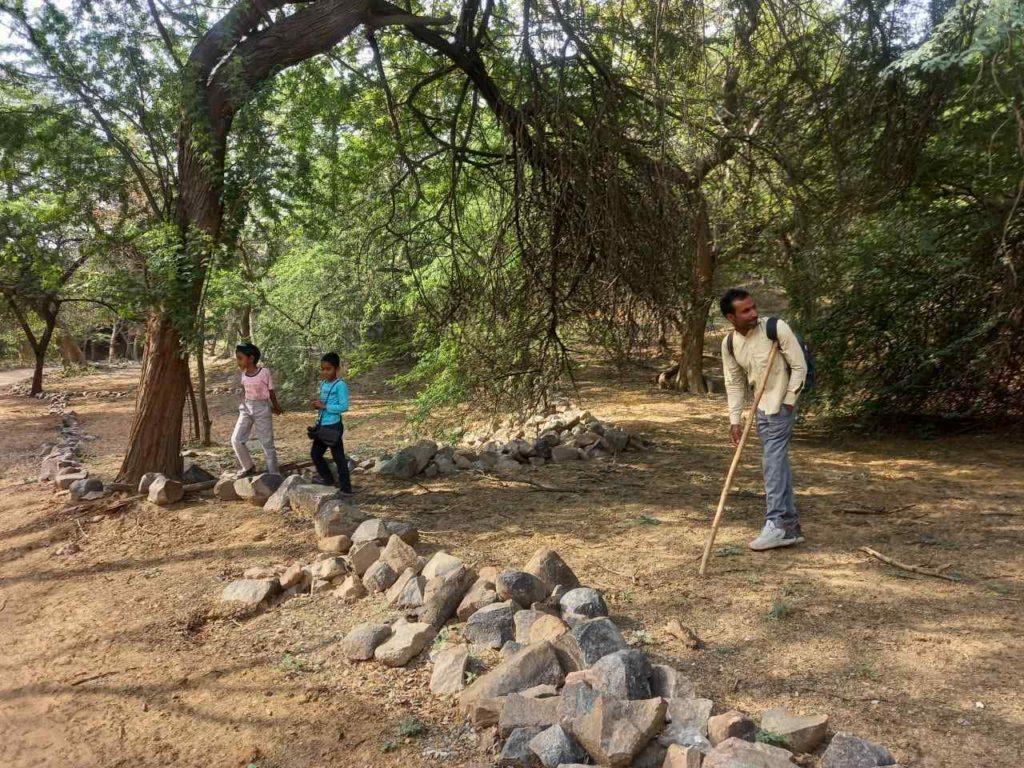
Photo Credits: Mangar Eco Club
When and how did you get interested in bird/nature education?
My village Mangar is located on the border of the national capital but is surrounded by forest from all sides. A part of the forest has been preserved as Mangar Bani for the past many generations, where our deity Gudaria Baba resides. In the year 2011, I started a campaign to save this sacred forest area from a development project proposed by the government, and during this campaign, I had the opportunity to meet people like Chetan Agarwal, Dr. Ghazala Shahabuddin, Pradeep Krishen and Vijay Dasmana – who have immense knowledge of the forests. I got an opportunity to assist them in their research work in this area. During this research work, I got a lot of new information about nature, which I did not know before. I never realized when this curiosity turned into a habit of finding out new information and sharing it with others.
What do you hope to achieve through your education work?
Nothing much! An older generation that knew how to maintain balance with nature is on the verge of extinction. The present generation is confused by the glare of so called development imposed by consumerism. My own experience in this long journey of conservation is that natural resources, be it water, forests, wildlife or rivers, cannot be conserved without support of the local communities because conservation exists in their local traditions. But unfortunately, in today’s time, we are passing through that fierce era of commercialization, where many such traditions have been destroyed. The old customs are either fast disappearing or they are getting adapted to consumerism. Our future generations are being cut off from their roots and are being swept away in the storm of development. In such a situation, to preserve the natural resources, traditions have to be revived by connecting future generations with nature. And it may be possible only through environmental education that we can save our future generation from the encroachment of consumerism so that they can define development in the right way while respecting the co-existence of human and nature.
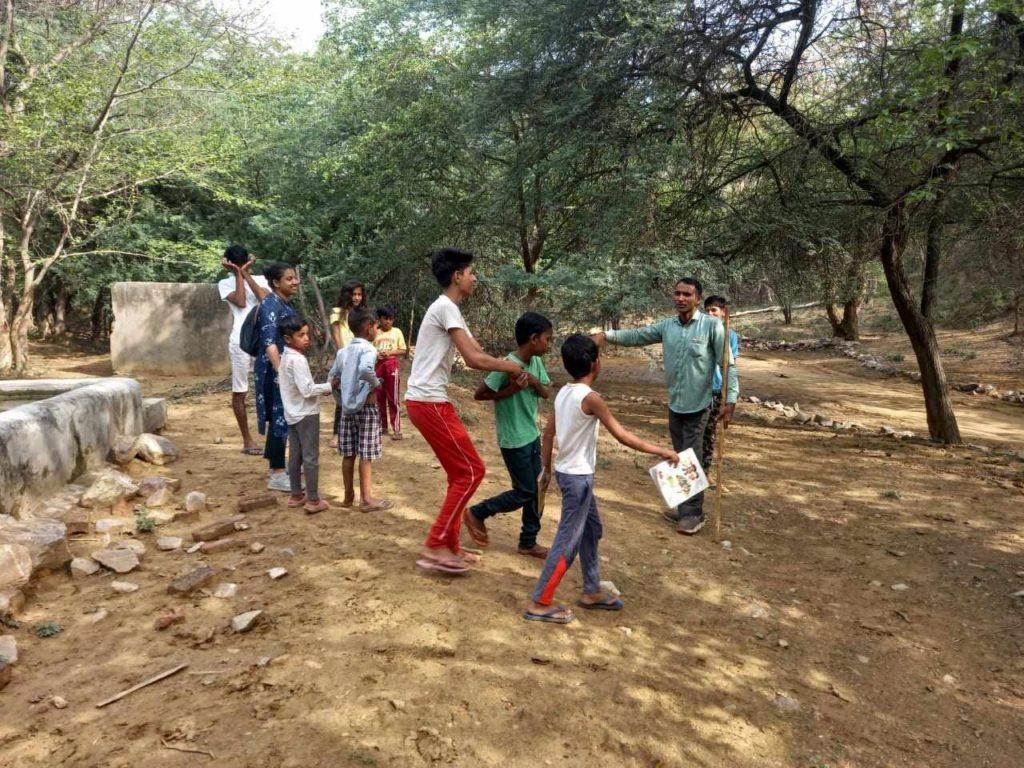
Photo Credits: Mangar Eco Club
Why do you believe it is important for children to learn about birds or connect with nature?
Childhood is the time of human life when a child’s understanding is being formed, as well as whatever they see, understand or learn during this period, its effect is visible in their activities throughout their life. Apart from this, the children of today are the future of tomorrow, so it is very important to connect them not only with birds but also with all the dimensions of nature.
What tools or resources have helped you in teaching about birds? Can you describe an approach that has worked exceptionally well for you?
I use all the resources like field guides, pocket guides, booklets, sports, art, literature, stories etc., and they help me a lot. However, I feel that the “observation” of kids is the most effective tool in their learning to build their understanding of nature, provided that tool is guided in the right way at the right time.
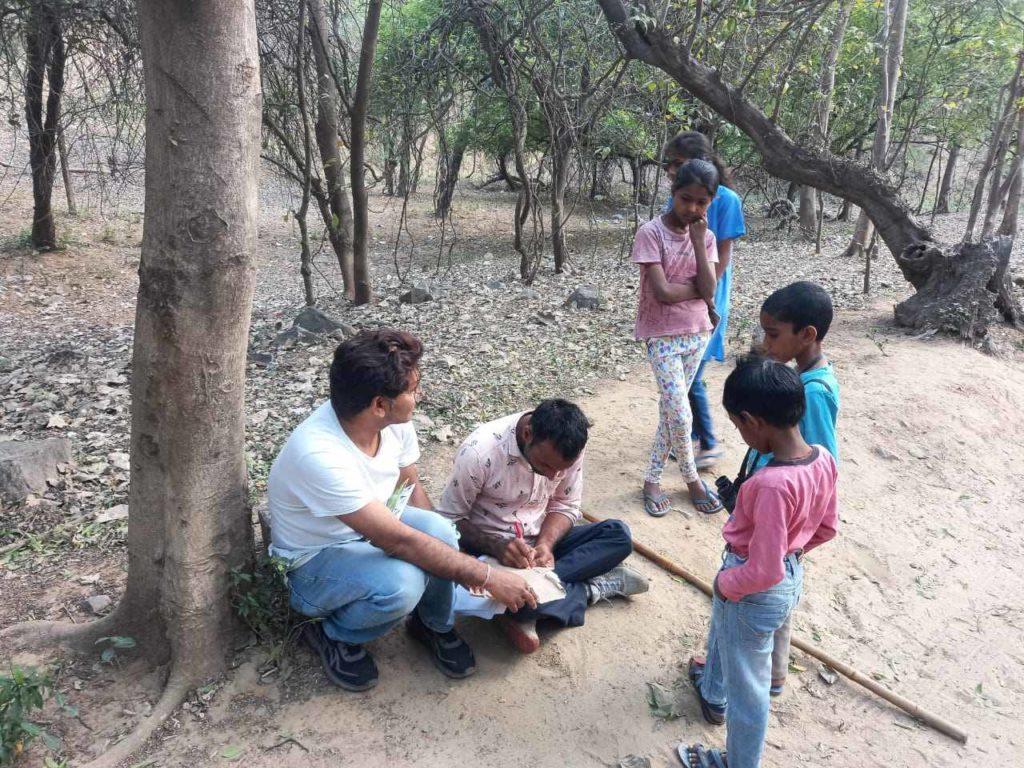
Photo Credits: Mangar Eco Club
Have you encountered a significant challenge as a bird/nature educator, how did you overcome it?
I do not consider myself as a nature educator because I have learned a lot from these children while being with them in the field. I rather consider myself as a student among them, just a little older. Many people have helped in teaching and still many other people are helping. My responsibility has mostly been just organizing the activities. However, there are many challenges in this too. Our mind is very fickle in childhood. Initially, something can be interesting, but the same activities again and again every week is surely a very challenging task. In such a situation, children start exiting in between and that time is very frustrating. Apart from this, modern parents also give importance to only book education of children and it is often seen that some children who take keen interest in the environment are not encouraged by their parents. However, such challenges can be tackled by continuously organizing different kinds of programs and keeping boredom away.
Do share any memorable moment or experience you have had in teaching kids about birds/nature. Can you recall any insightful instance that shaped your perspective?
Yes, Mangar Bani where we conduct environmental activities is a sacred grove. So there is a trend of shouting slogans on the completion of any work. Earlier, probably when there was more fear and probability of encountering a wild animal, people would make loud sounds while walking through the forest. However, now there is a lot of noise all around, so we ask our children not to make noise in the Bani area so that the birds living there do not get disturbed. Once we organized a tree plantation program in the Bani area. As the program was organized by the government through the schools, the school teachers also participated in it. At the end of the programme, the principal asked the children to cheer loudly, but the children pleaded with the teachers to not make noise in the area because birds will get disturbed. After listening to them, the teachers were speechless. It was a precious moment in my life.
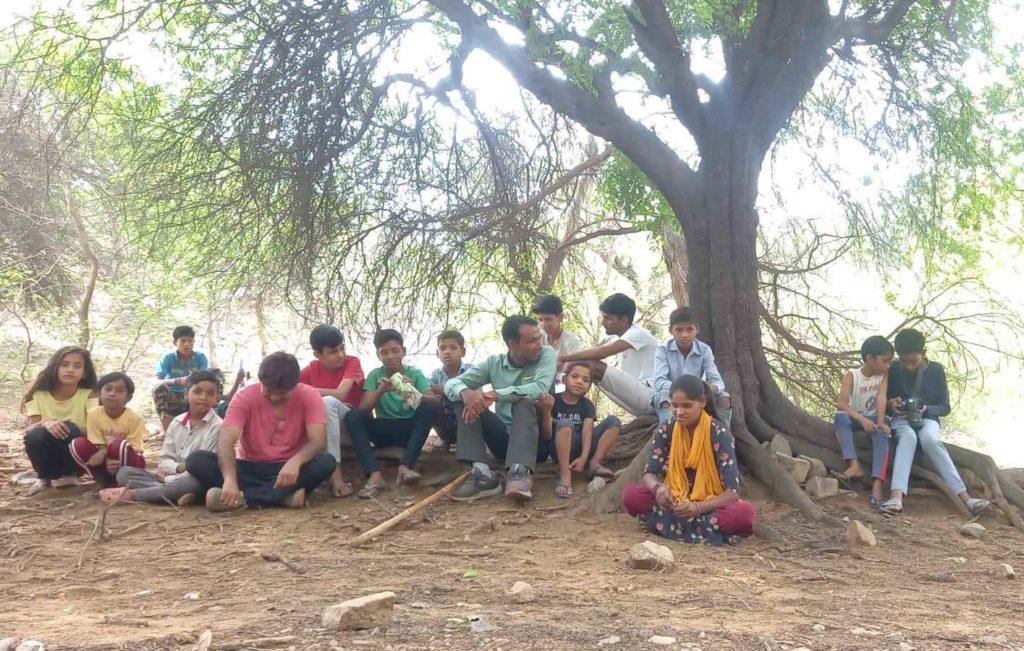
Photo Credits: Mangar Eco Club
Have you noticed any changes in your learners after they received exposure to birds and nature-based learning? If yes, what are they? If not, why do you think that is?
Mangar Eco Club was established in 2015. In the last eight years the children of the first 2-3 batches have grown up. Many of them have also started working. These children, however, have a very positive attitude towards nature in comparison to other children their age. They give importance to nature conservation in their daily activities. Apart from this, they also cooperate in the work I am doing for environmental protection. Some children, after completing their education, are promoting environmental education using modern mediums like social media such as Instagram and YouTube. In addition to the Instagram and Facebook page in the name of Mangar Eco Club, there is a YouTube channel which is completely operated by the students of the Eco Club.
What message would you have for your fellow educators, or somebody starting out in their nature education journey?
Nothing special, just that environmental education should not mean making children or adults compete to become more knowledgeable. Rather the aim of environmental education should be to make them aware of their ecosystem and to make them feel their presence because of that ecosystem. Running after rare or elusive creatures should not be the goal, rather we should get acquainted with our immediate environment and learn to appreciate, respect and protect it.

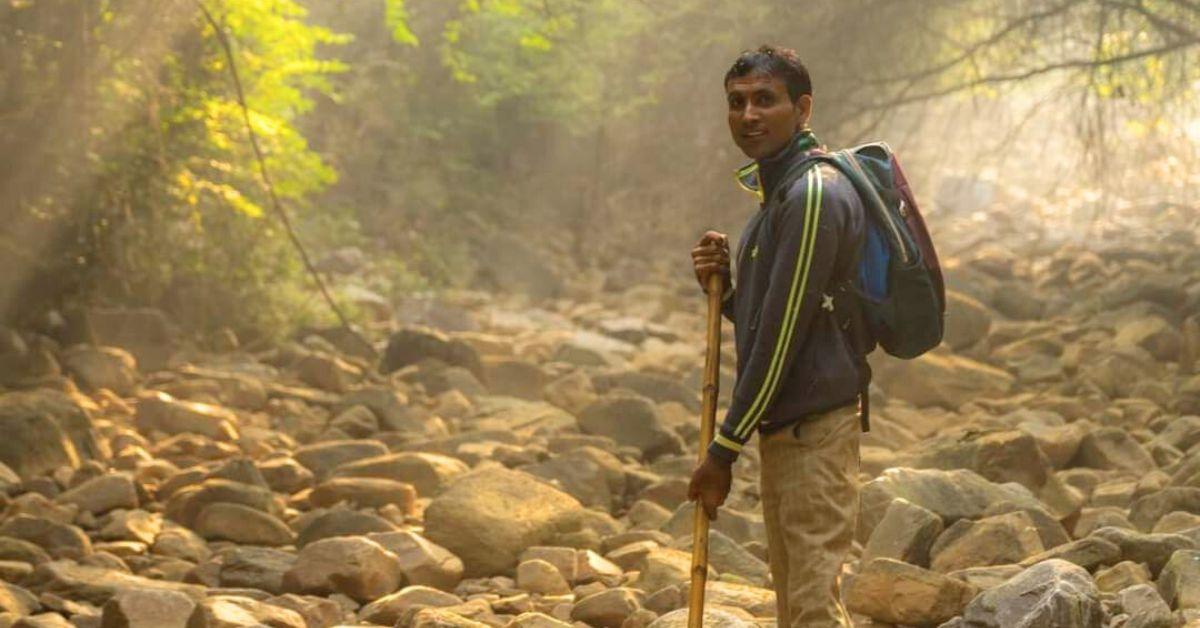
We wish to take up a research project with you on the Palaeolithic rock paintings of Aravali